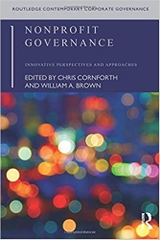-
-
-
Tổng tiền thanh toán:
-
-
Thông tin
-
Tìm sách theo yêu cầu
Forty years ago, managerialism dominated corporate governance. In both theory and practice, a team of senior managers ran the corporation with little or no interference from other stakeholders. Shareholders were essentially powerless and typically quiescent. Boards of directors were little more than rubber stamps.
Today, the corporate governance landscape looks vastly different. The fall-out from the post-Enron scandal and implementation of the Sarbanes-Oxley Act have resulted in shareholder activism becoming more widespread, while many observers call for even greater empowerment. The notion that the board of directors is a mere pawn of top management is increasingly invalid, and as a result, modern boards of directors typically are smaller than their antecedents, meet more often, are more independent from management, own more stock, and have better access to information.
The New Corporate Governance in Theory and Practice offers an interdisciplinary analysis of the emerging board-centered system of corporate governance. It draws on doctrinal legal analysis, behavioral economic insights into how individuals and groups make decisions, the work of new institutional economics on organizational structure, and management studies of corporate governance. Using those tools, Stephen Bainbridge traces the process by which this new corporate governance system emerged, and explores whether such changes are desirable or effective.
Tại web chỉ có một phần nhỏ các đầu sách đang có nên nếu cần tìm sách gì các bạn có thể liên hệ trực tiếp với Thư viện qua Mail, Zalo, Fanpage nhé
Đăng ký nhận tin qua email
Hãy đăng ký ngay hôm nay để nhận được những tin tức cập nhật mới nhất về sản phẩm và các chương trình giảm giá, khuyến mại của chúng tôi.












